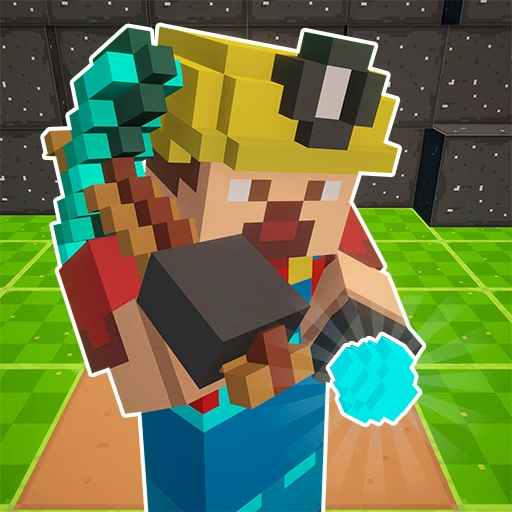Are you intrigued by the art of fusing metals together, creating a symphony of strength and beauty? If so, welding may be the right path for you! Welding jobs offer an exciting career filled with opportunities to work on challenging projects and showcase your craftsmanship. In this comprehensive guide, we will dive into the world of welding, exploring the different types of welding jobs, necessary skills, educational requirements, and tips to help you succeed in this dynamic field. So, grab your welding helmet and let’s get started!
Table of Contents:
1. Introduction: Unleashing the Spark
2. Different Types of Welding Jobs
3. Essential Skills for Welding Jobs
4. Educational Requirements
5. The Path to Becoming a Skilled Welder
6. Tips and Hacks to Excel in Welding Jobs
7. Conclusion: Honing Your Craft and Embracing a Steel Future
Introduction: Unleashing the Spark
Have you ever wondered how towering skyscrapers, magnificent bridges, or even your trusty automobile were built? Welding plays a crucial role in creating these marvels of engineering. It is a skill that demands precision, creativity, and a burning passion for creating something powerful from seemingly ordinary materials.
Different Types of Welding Jobs
In the vast realm of welding, opportunities abound for those passionate about this craft. Let’s explore some of the exciting welding job paths:
1. Structural Welding: Constructing the Backbone
– Welders in this field work on projects involving buildings, bridges, and other structures. They possess the skills to fuse heavy metal components, ensuring strength and durability.
2. Pipe Welding: Mastering Precision
– As a pipe welder, you’ll find yourself working on pipelines, plumbing systems, or even specialized projects like oil rigs. The ability to create flawless connections is paramount in this field.
3. Underwater Welding: Diving into the Depths
– Imagine welding submerged in water, surrounded by marine life and breathtaking seascapes. Underwater welders play a vital role in repairing and maintaining structures like offshore oil platforms.
4. Aerospace Welding: Reaching for the Stars
– If you dream of contributing to space exploration, aerospace welding may be your calling. This field involves fabricating and repairing spacecraft components, ensuring they withstand the harsh conditions of space.
Essential Skills for Welding Jobs
To thrive in welding jobs, it’s vital to possess a set of core skills that will help you excel in this demanding profession. Here are some essential skills that every welder should cultivate:
1. Attention to Detail: Welding requires precision, accuracy, and the ability to follow specifications to the letter. A keen eye for detail ensures your welds meet industry standards.
2. Manual Dexterity: As a welder, your hands and fingers become your primary tools. Developing excellent hand-eye coordination and precise movements is necessary for executing intricate welds.
3. Problem-Solving Abilities: Occasionally, even the most well-defined plans face unexpected challenges. Being a resourceful problem-solver allows you to tackle obstacles head-on and find innovative solutions.
Educational Requirements
While formal education is not always a prerequisite for welding jobs, acquiring the right credentials can significantly enhance your employability. Here are some educational pathways worth considering:
1. Trade Schools/Community Colleges: These institutions offer comprehensive welding programs that provide hands-on training, safety protocols, and a solid foundation in welding techniques.
2. Apprenticeships: Learning from experienced welders through apprenticeship programs allows you to gain practical skills while earning a wage. It’s an excellent opportunity to develop your craft and network within the industry.
The Path to Becoming a Skilled Welder
Becoming a skilled welder is a journey that starts with passion and dedication. Here are the steps to help you embark on this fulfilling career:
1. Research and Explore: Dive deep into the world of welding, learn about its various disciplines and understand the demands and rewards of each specialization.
2. Gain Experience: Seek opportunities to practice your skills, whether it be through personal projects, local fabrication shops, or volunteer work. Experience is invaluable in refining your technique.
3. Obtain Certifications: Investing in professional certifications, such as those offered by the American Welding Society (AWS), showcases your expertise and opens doors to higher-paying jobs.
Tips and Hacks to Excel in Welding Jobs
Ready to shine amidst the sparks and molten metal? Here are some handy tips and hacks to level up your welding game:
1. Protect Yourself: Always prioritize safety by wearing appropriate personal protective equipment (PPE), including a welding helmet, flame-resistant clothing, gloves, and safety glasses.
2. Master Your Tools: Familiarize yourself with different welding machines, electrodes, and shielding gases. Understanding the nuances of each tool will empower you to choose the right combination for specific projects.
3. Practice, Practice, Practice: Welding is an art that requires continuous practice to sharpen your skills. Dedicate time to refine your technique, experiment with various welding methods, and seek feedback from seasoned professionals.
Conclusion: Honing Your Craft and Embracing a Steel Future
Congratulations on taking the first step towards a rewarding career in welding! Remember, the world of welding offers a vast array of job opportunities across various industries. By harnessing your skills, continuing to learn, and embracing new challenges, you can forge a future filled with endless possibilities. So, fuel your passion, grab that welding torch, and set your sights on creating masterpieces that withstand the test of time!


